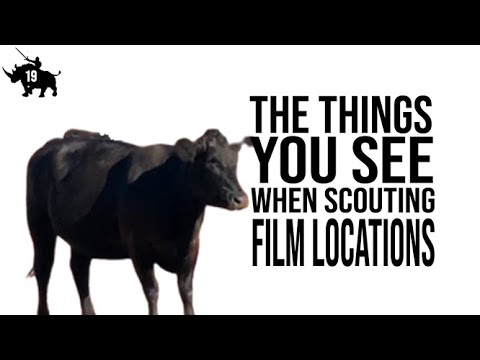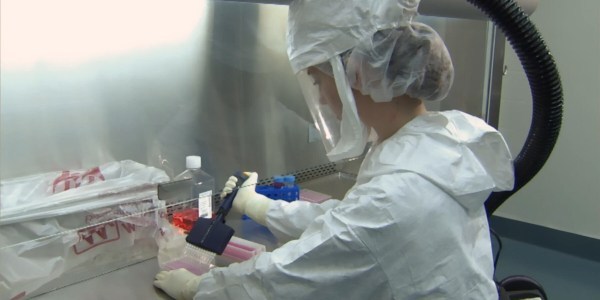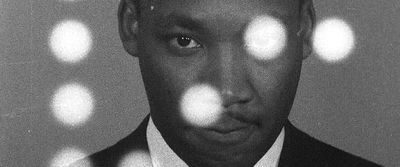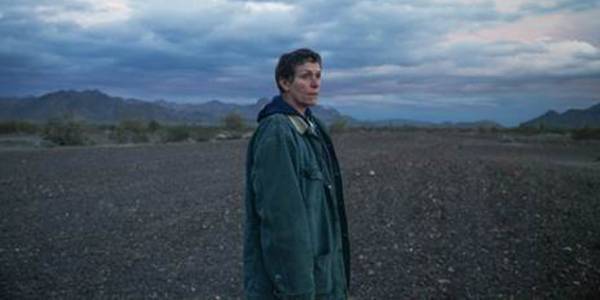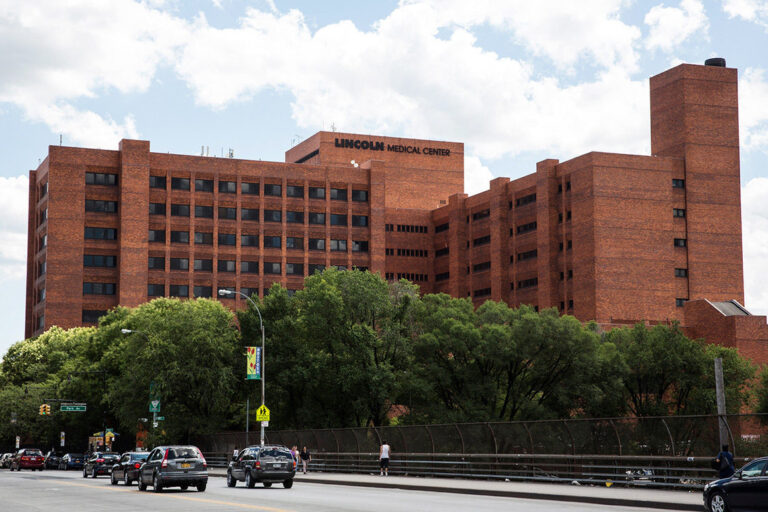Young Love Makes for a Powerful Family Portrait
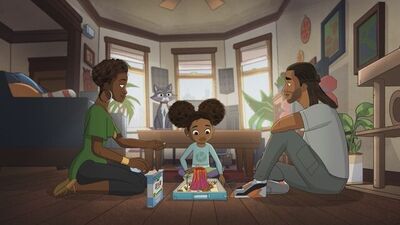
In 2019, Matthew A. Cherry’s “Hair Love” became a milestone in Black animation excellence. The Kickstarter project that became an Academy Award-winning animated short about a Black father, Stephen, attempting to do his daughter Zuri’s hair before visiting his girlfriend Angela at the hospital captured the hearts of many nationwide. It was a refreshingly positive depiction of Black fatherhood, often stereotyped in the media.
Notable animators Bruce W. Smith (“Proud Family: Louder and Prouder”) and Everett Downing Jr. (“My Dad the Bounty Hunter”) were co-directors alongside Cherry on “Hair Love” before developing their respective shows. The short’s widespread love and success even led to a viral trend of Black dads posting videos of them styling their daughters’ hair. The MAX series adaptation, “Young Love,” graduates the source’s general appeal for a young-adult demographic—specifically, a millennial crowd who once grew up with Black ’90s sitcoms. Even with a longer format, Cherry’s creation maintains its stance as one of the media’s richest positive African-American family portraits.
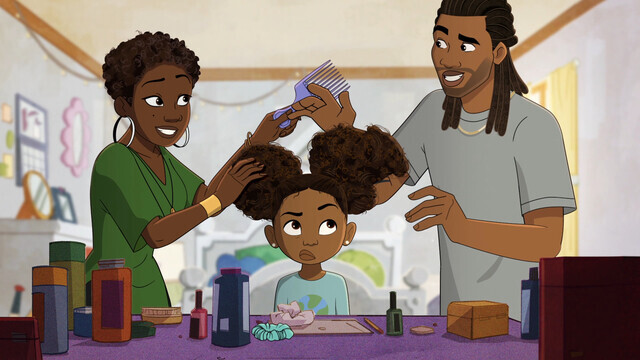
Picking up right where “Hair Love” left off, “Young Love” follows the Young/Love family: music producer Stephen Love (Scott Mescudi), hair stylist/vlogger Angela Young (Issa Rae), and their precocious six-year-old daughter Zuri (Brooke Conaway), navigating life in Chicago two months following Angela’s cancer recovery.
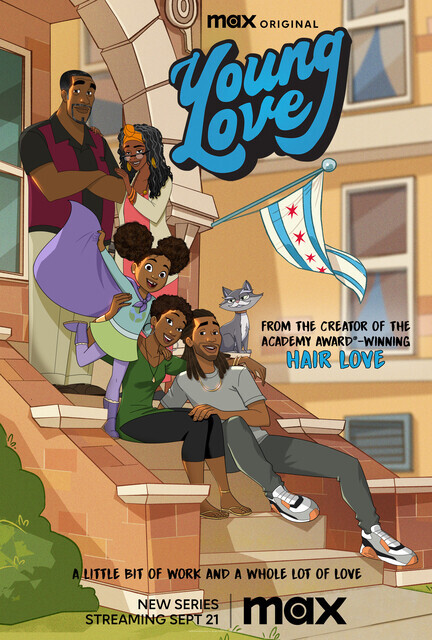
Waiting for his big break, level-headed Stephen is advised by his agent, Star (Tamar Braxton), to produce beats for up-and-coming, arrogant rapper Little Ankh. To the dismay of Angela’s stern, traditionalist father/landlord Russell (Harry Lennix) and mother Gigi (Loretta Devine), Stephen’s freelancing music-producing gig isn’t sustainable enough to pay the bills. Meanwhile, Angela restarts her life, returning to her salon job, where her co-workers initially treat her as a patient rather than a person. Then, she finds a list of post-cancer goals and works on the personal endeavors she promised herself. Young Zuri gets into many misadventures at elementary school, often rebelling against the system by becoming Angela Davis for coffee cakes at her school, going against Girl Scouts, and appointing herself as a new messiah when she doesn’t get a star student award.
For a series about a modern African-American family, “Young Love”‘s essence carries itself like a contemporary version of classic late ’90s-early ’00s Black sitcoms like “My Wife and Kids,” “One on One,” “All of Us” (anything that derived from the UPN lineup), which aired during the formative years for millions of millennials. Like those shows, “Young Love” shines through its writing, resuming the family’s loving camaraderie established in the short, even for unfamiliar viewers. Now that the characters speak, the writing staff strikes a lighthearted, effortlessly charming tone led by humorous, personality-driven characters.
The series prospers from thoughtful and insightful takes on generational differences in traditionalist topics: religion not being essential in Stephen and Angela’s lives, which shocks Russell and Gigi, trying to be a better parent than the one before you, sharing a bank account. The writers’ greatest strength is in rendering Stephen and Angela’s relationship. They are a supportive, loving couple whose bond transcends societal nuclear family expectations, another topic handled with maturity and insightfulness. They’re comfortable in their familial status without putting a ring on each other’s fingers. Even with their strong bond, their relationship doesn’t define their characters, as the writers focus on them individually in their frustrating pursuits of happiness. Some of the strongest episodes within the 12-episode season lie in examining each party’s search for purpose in their everyday lives.
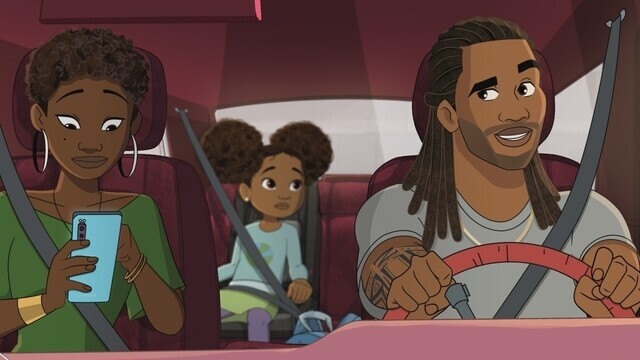
For example, the first few episodes concentrate on Angela starting anew, cancer-free, trying to get back on track with her career and personal endeavors, and being a mother. It also digs deeper into Stephen’s background and a tragic childhood that still haunts him. Not every topic it tackles is a winner. Most discussions are treated with a light feather, and the season can lack continuity. Sometimes, its adult humor is tonally uneven with the many Disney-fied resolutions on episodes about homelessness and parenthood. Oddly enough, Disney’s own “Proud Family: Louder and Prouder” tackles similar themes but in a bold, diplomatic sense.
The energetic voice cast elevates any issues with the writing. The amazing Issa Rae brings so much of her onscreen traits—independent, wide-eyed dreaming, eccentric personality, and flawless comic timing—to the character. Even behind the booth, Rae textures her animated characters as people. The same goes for Scott Mescudi (aka Kid Cudi) as Stephen, whose natural, deep voice matches the character’s straight but entertaining personality. The standout comic relief is young Brooke Conaway as Zuri, who pours endless life and energy into her character in her line delivery.
A few months ago, I wrote an essay about how important Black animation was to me. As a millennial/Gen-Z cusper who remembers UPN’s final days and the extensive drought in Black animation representation that wasn’t for an adult audience, “Young Love ” is like an intrusive dream come true. It’s a thoroughly charming, hilarious, and often thoughtful continuation of the beloved short. Examining many social and generational topics from an underrepresented Black-millennial lens, this heartfelt series is a pure delight for families everywhere.
The whole season was screened for review. “Young Love” premieres on Max on September 21st.
